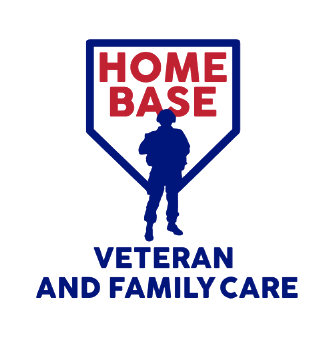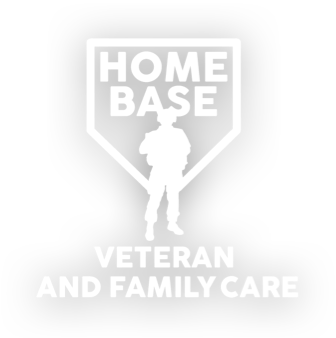More Than Just Headaches: 7 Truths Behind Military Traumatic Brain Injury
What is a Military Traumatic Brain Injury?
A TBI is caused by a bump, blow, or jolt to the head that disrupts the normal function of the brain. Regardless of severity, brain injuries cause symptoms such as headaches, dizziness, fatigue, weakened physical abilities, and impaired ability to concentrate. In addition, a brain injury may negatively affect memory, sleep, senses, and emotions, and may impede language and communication abilities.
The Military Culture Shift is Just Beginning
“When we first went into Afghanistan and Iraq back in 2002 and 2003, post-traumatic stress and traumatic brain injuries really weren’t anything that came up on our screens,” explains Hammond, who has commanded troops at the Platoon, Troop, Battalion and Brigade level both at home and abroad, including Afghanistan in 2002, Iraq in 2003, and Afghanistan 2011-2012 “We had a number of soldiers in Fallujah that received blast injuries from rocket-propelled grenades (RPGs), roadside bombs, mortars, rockets, and hand-grenades. If you were able to walk away, we high-fived. It was ingrained in all of us…you continue to march, you continue to fight. We played hurt.”
That mentality of “playing hurt” shifted by the time Hammond deployed to Afghanistan again in 2010. Diagnostic and treatment protocols were established – in part – thanks to Dr. Zafonte who spent time in the region and studied the longitudinal effects of TBI. Under the guidance of Dr. Zafonte, Home Base and Spaulding’s pioneering research is already accelerating knowledge that translates into better clinical care for Veterans, Service Members and Special Operations Forces.
We’ve Only Recently Begun to Understand the Full Impact Of TBI
Like professional sports teams, the military is beginning to understand that a TBI is more serious than a bump on the head that requires a couple of aspirin and back into action. “There are systems in place now that did not exist a decade ago,” says Michael Allard. “What we have today is a much better system of care, not only within the military – but organizations – like Home Base – are working with our DOD and our VA counterparts to develop novel models of interventions.”
Stigma Can Deter Treatment, But Early Intervention Is Necessary
“I’ve had a soldier with a brain injury based on a roadside bomb that lost a quarter of his head, and he returned to duty because of that drive to get back and continue to serve. Stigma to connecting to care is real, and anything that deters people from coming to get the help they need over something as silly as a stigma is painful for us to see,” says Hammond. “We want to make sure that people understand these are legitimate and serious wounds.
“Some of the wonderful innovation and success stories we’ve had here at Home Base are because of the deep resources that we’re able to access here at Home Base between Spaulding Rehab and the Mass General Hospital,” says Hammond. “I know many Veterans who wish they could have gotten care sooner. But they don’t really look in the rear view mirror a lot. They’re happy for the guys to get the treatment now and they would be advocates for the young men and women that are coming up to make sure they get the help as soon as possible.”
Family Members are Essential to Healing and Recovery
The belief that family members play a significant role in the recovery of traumatic brain injuries lies at the heart of the foundation at Home Base. “This is a team effort and it starts with the family and it starts with approaches that that family member can really readily understand it and then know where to go,” says Allard. “When you can begin to educate those family members, they begin to understand that there are resources out there that will take them in and coach them through it to get their loved one into care. Now you’re making progress and you can put it into the hands of the clinicians who do have a handle on where we should go with the actual care.”
Private-Public Partnerships are Essential in Meeting the Growing Demand
“Home Base has been a unique starter of a flame that was necessary to really look at private-public partnerships and how we can serve as a complementary resource for people who need access to care, access through their families,” adds Zafonte, “Access for people who have difficult symptom complexes chronically, access for people who have unusual parts of that diagnosis. Not to be exclusive of the VA, but to collaborate with the VA for a single purpose, getting the Veteran well – that is what Home Base is here to do.”
Access to Care is Key – Home Base Answers the Call
As a National Center of Excellence, Home Base provides a holistic and innovative approach to clinical care for Veterans, Service Members and their Families. Through a long-standing partnership with Spaulding Rehabilitation Hospital, this unique partnership allows Home Base to utilize today’s most cutting-edge technology and treatment for TBI. “We’ve invested and have extraordinary resources from a brain injury treatment and research perspective,” notes Zafonte, when asked about the integration between Spaulding and Home Base. Spaulding has been the TBI model center of the country and the neurology, neurosurgery and orthopedics programs at Home Base, which include specialists who treat traumatic brain injury, are consistently ranked among the best in the country by U.S. News & World Report.
“Veterans deserve to have their injuries taken more significantly and when we think about it, it’s critical for us to appreciate that there could be some longer-term effects. Most people who are treated well early on will get better.”
Connect to Care
If you suspect that you or a loved one has suffered a concussion or traumatic brain injury, it’s important that they receive proper care as soon as possible following injury as this can have significant impact on their recovery. To learn more about clinical and support programs at Home Base for TBI, contact Home Base at (617) 724-5202 or visit www.homebase.org/connect2care.
Above article by Cassandra Falone, Director of Communications, Home Base Program for Veterans and Families


 Home Base
Home Base